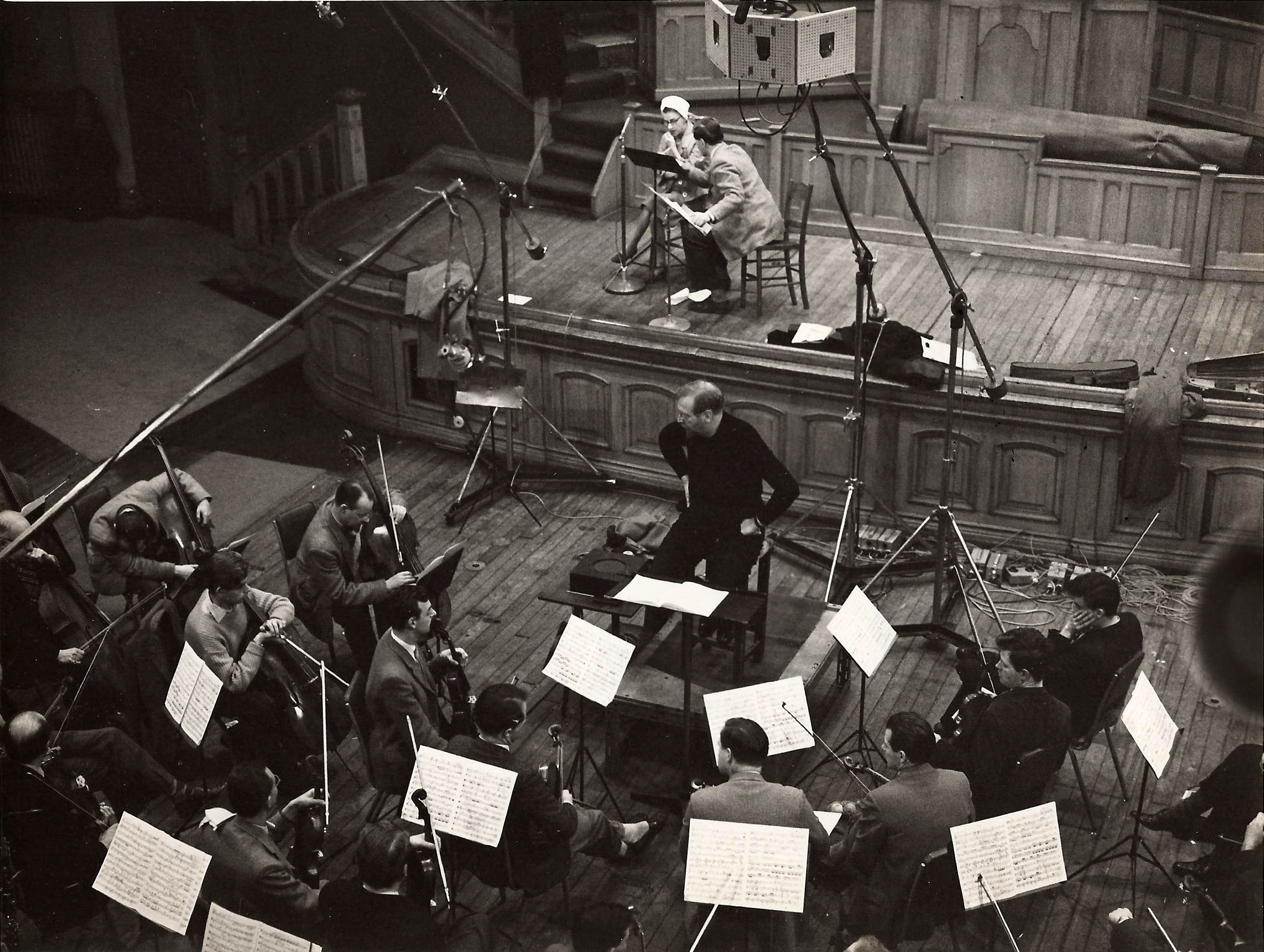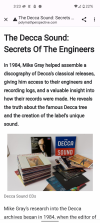I was just listening to this amazing recording (which is actually from 1959):
of Alfredo Campoli playing and Adrian Boult conducting the Bruch Scottish Fantasia. Beyond the awesome fiddle playing and even better orchestration, I have to ask, what were they doing at Decca to get that sound? It sounds so alive, vibrant and convincing - is this the effect of the Decca tree in action?
Just listen to the horns in particular, they sound like horns. Horns in many recordings today sound like they have been castrated and cut off at the knees.
This was all the way back in 1959, think of the rudimentary technology they were using, yet they could get this sound...just incredible.
There are, sadly, many other great performances from this era, not done by Decca, that sound much closer to 78rpm shellac from the 1940s, than this which could be mistaken for a present day recording (except with more oomph, recording and musicians alike).
How were their recordings head and shoulders above the rest?
of Alfredo Campoli playing and Adrian Boult conducting the Bruch Scottish Fantasia. Beyond the awesome fiddle playing and even better orchestration, I have to ask, what were they doing at Decca to get that sound? It sounds so alive, vibrant and convincing - is this the effect of the Decca tree in action?
Just listen to the horns in particular, they sound like horns. Horns in many recordings today sound like they have been castrated and cut off at the knees.
This was all the way back in 1959, think of the rudimentary technology they were using, yet they could get this sound...just incredible.
There are, sadly, many other great performances from this era, not done by Decca, that sound much closer to 78rpm shellac from the 1940s, than this which could be mistaken for a present day recording (except with more oomph, recording and musicians alike).
How were their recordings head and shoulders above the rest?
Last edited:


